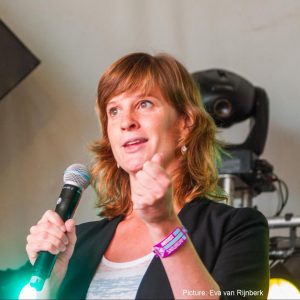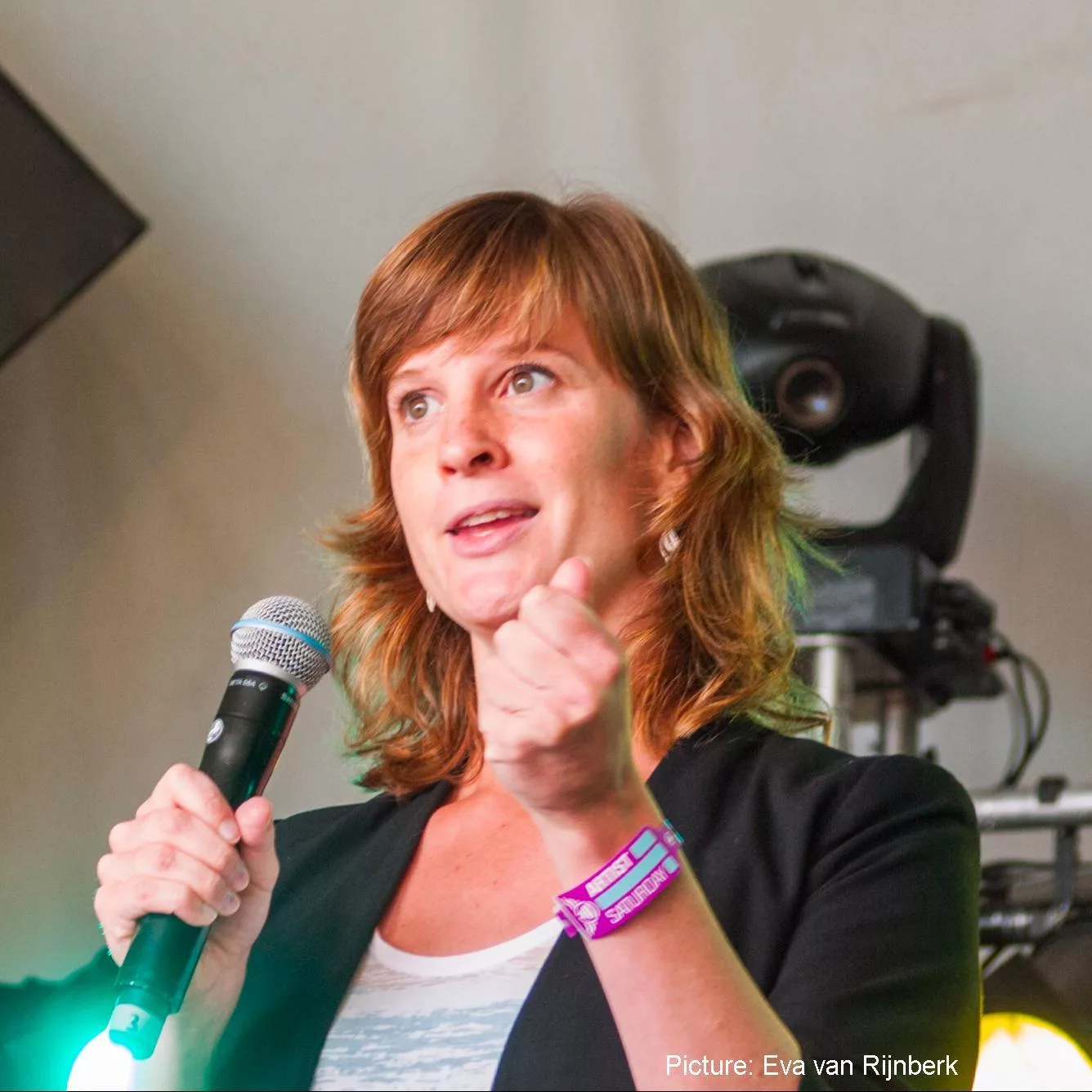By Arjanna van der Plas
It’s a common dilemma for investors of all sorts: in their heart they want to choose for sustainable investing, but their brain tells them it’s wiser to go for financial gains. And even if the heart wins and they start looking into sustainable investments, they may worry that“fossil-free” and “low-carbon” funds still hold negative impact companies, such as tobacco, weapons, and other concerns.
SOCAP’s panel discussion “Capital in Transition: Scaling Climate Solutions across Private and Public Markets” brought a more optimistic perspective. In a lively discussion, Catha Groot (Radicle Impact), Ian Monroe (Etho Capital and Stanford University), Katie Hoffman (Resilience Collaborative), Kristin Hull (Nia Global Solutions) and Brenden Millstein (Carbon Lighthouse) shared how we can solve pressing climate challenges by making smart investments that lead to financial growth.
Ian Monroe: “A lot of the risk conversation is flipping the situation on its head. If you are not taking climate change into account in your investment decisions, you are actually introducing a substantial risk, not in the far future, but right now. Climate conscious companies are already outperforming their peers. Carbon Lighthouse is a great example of that.”
The Tesla of Investments
Carbon Lighthouse provides an ongoing service that cuts energy use in commercial, industrial, and educational buildings 10x more cost-effectively than traditional energy efficiency firms. They guarantee all financial gains for customers, and for any shortfall they cannot correct Carbon Lighthouse writes customers a check to cover the difference.
Brenden Millstein, CEO of Carbon Lighthouse: “From a business perspective, one of the best ways to tackle climate change is through the energy market. It is a huge market, with a lot of competition and complex regulations. Currently, utility providers are supposed to provide their clients with energy efficiency programs. Obviously, that doesn’t work so well, as that isn’t in the best interest of the utility provider itself. At Carbon Lighthouse, we basically take money away from the power plant and divide that between us and the customer. We don’t really advertise that we are a climate change company. Rather, we show that we offer a service that is going to make the lives of our customers easier and cheaper.”
Monroe: “We do something similar with Etho Capital. I’ve always been a sustainability geek, I grew up on a farm in Mendocino county and I have seen thousands of neighbors lose their homes to wildfires linked to our worsening drought cycles. Climate change is a real thing, and we have to scale up sustainable solutions in a way that is profitable. However, when talking about our Etho Capital funds, we focus on what’s in it for the investors. We show them that we have a more thorough risk analysis and better screening than our competitors. Because we dive really deep into both scientific metrics and supply chains, we feel we have a better picture of which companies are really the most sustainable, efficient and well-managed, with these leaders positioned to stay ahead of their competition. We want to be the Tesla of investments by offering a better overall experience that delivers both higher financial returns and real sustainability.”
Kristin Hull, President of Nia Global Solutions: “It’s our mission to invest in companies that are successful from a financial, sustainable and social point of view. One of the things we learned is that diversity in leadership correlates with success, as well as having the communities that you invest in on board. That is also something that is easy to explain for ‘old fashioned’ clients: we’ve seen in the past that companies with strong leadership and good partners are more reliable, so it makes a lot of sense to them to invest in the companies in our portfolio.”
All Hands On Deck
Catha Groot, director at Radicle Impact: “We should note that although these discussions are often focused on VC’s, we need all types of investors to come on board. We need government dollars for pre-commercialization development gaps. Then you will get more institutional investors. It would be a dream for me to see good climate funds available in our 401K. It’s critical to pair the right stage company with the right type of capital. Carbon Lighthouse is a wonderful example of a company that was already profitable before the venture capital came in. But there are also multinationals working on sustainable solutions, and they require a different kind of capital.”
The Voice of the Shareholders
Kristin Hull: “What we also shouldn’t forget is that being a shareholder is not purely a financial role. If you are a shareholder of a company that is not prepared for the new sustainable economy, make sure to let your voice be heard. Proxy voting is one of the most underutilized tools if you ask me. And of course, you can have a dialogue with the management of the company.”
If there is one take-away from this lively SOCAP panel discussion, it is that it is absolutely feasible to seek financial gain, as well as to help provide innovative solutions for people and the planet.
Want to learn more? Check out the websites of the panelists’ companies:
www.ethocapital.com
www.radicleimpact.com
www.niaglobalsolutions.com
www.carbonlighthouse.com
www.rescollc.com
About the author
 Arjanna van der Plas is a social impact focused author, yoga teacher and workshop facilitator. She currently spends most of her time in San Francisco’s Tenderloin neighborhood, teaching yoga and meditation at the Healing Well, and writing a book and blog series called Stories Behind The Fog together with the Free Range Puppies. With Stories Behind The Fog she wants to challenge the single-minded view of homelessness by rendering its entire spectrum, one story at a time.
Arjanna van der Plas is a social impact focused author, yoga teacher and workshop facilitator. She currently spends most of her time in San Francisco’s Tenderloin neighborhood, teaching yoga and meditation at the Healing Well, and writing a book and blog series called Stories Behind The Fog together with the Free Range Puppies. With Stories Behind The Fog she wants to challenge the single-minded view of homelessness by rendering its entire spectrum, one story at a time.
Before Arjanna moved to San Francisco, she was communications manager for the Amsterdam based sustainability startup Circle Economy. Prior to that, she was a lecturer at the TU Delft, innovator at TNO (the largest independent research organization in the Netherlands) and freelance science journalist. Arjanna holds two MSc. degrees from the TU Delft, one in Industrial Design Engineering and one in Science Communications. Follow her on Medium, Linkedin, and Twitter.


